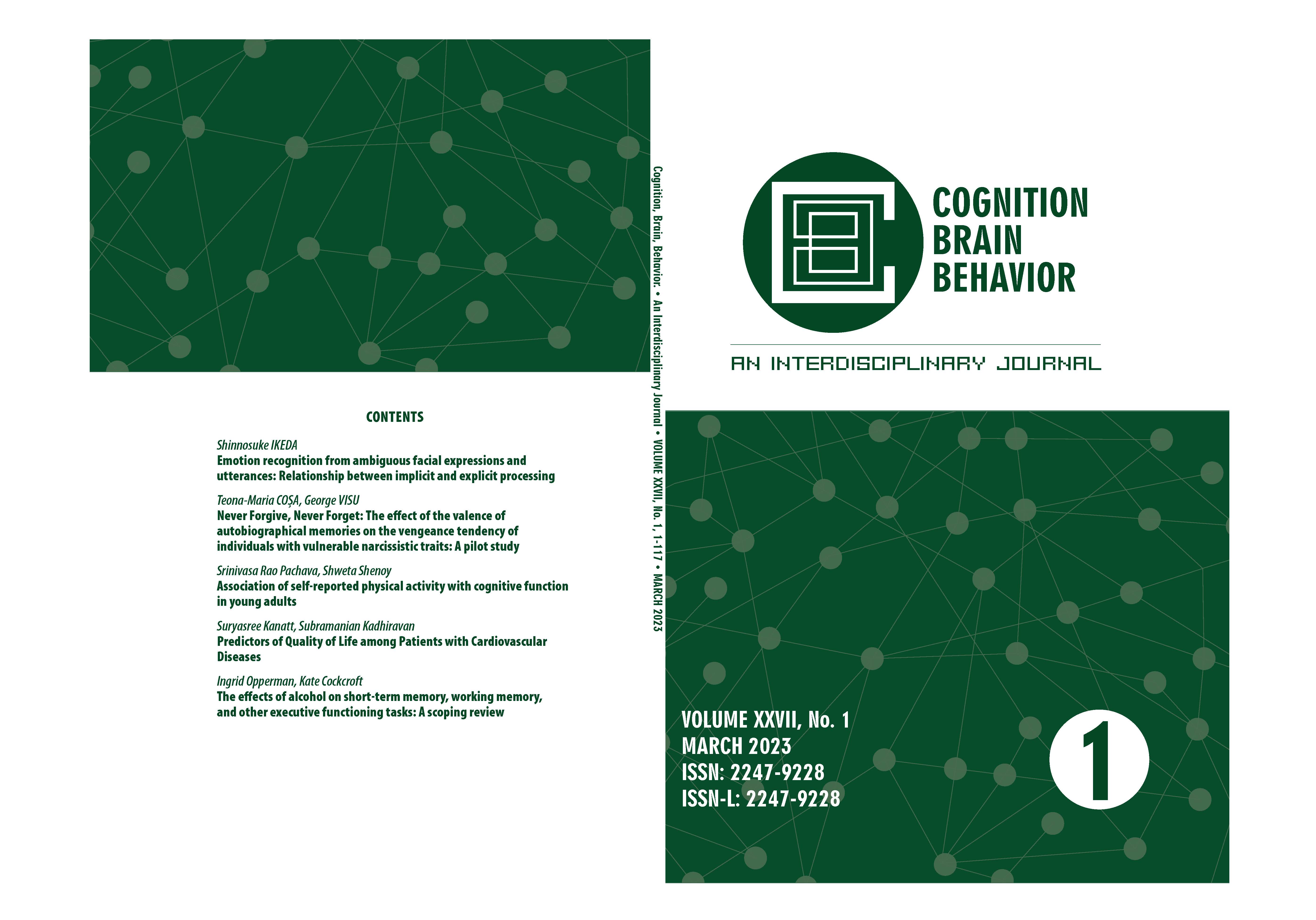Never Forgive, Never Forget: The effect of the valence of autobiographical memories on the vengeance tendency of individuals with vulnerable narcissistic traits: A pilot study
Never Forgive, Never Forget: The effect of the valence of autobiographical memories on the vengeance tendency of individuals with vulnerable narcissistic traits: A pilot study
Author(s): Teona-Maria Coșa, George VisuSubject(s): Individual Psychology, Developmental Psychology, Personality Psychology, Behaviorism, Methodology and research technology
Published by: Editura Asociației de Științe Cognitive din România (ASCR)
Keywords: vulnerable narcissism; vengeance tendency; autobiographical memories; interpersonal behaviors; narcissistic behavior;
Summary/Abstract: Vulnerable narcissism has been associated with the tendency to seek revenge after the individuals perceive certain responses from others, either verbal or behavioral, as attacks to their self-esteem. However, less is known about the multiple possible sources of prolonged and/or repeated vengeance-seeking behaviors, most scientific articles focusing on the direct, in vivo potentially ego-threatening communication with the narcissistic individual. The current study aimed to explore the degree to which the nature of autobiographical interpersonal memories influences the intensity of the revenge tendency in a sample of 67 subjects with a higher level of vulnerable narcissistic traits, who were randomized in three conditions. The main hypothesis was that negative memories (represented by social situations in which the individual has been discredited) would lead to a greater endorsement of vengeance- related assumptions, while positive memories (represented by moments when praise was received) to a lower vengeance tendency (as measured with the same specific instrument in both cases). Statistically significant differences were observed between the positive event recall condition and the negative event recall one, participants in the latter group scoring significantly higher on the instrument measuring the vengeance tendency. Lower scores on the Vengeance Scale were observed, as predicted, in the positive event recall group. These results have the potential of adding to the existing literature a new perspective on this cognitive facet of vulnerable narcissistic individuals, helping to adjust the expectations about themselves even more. Such results may also help shift the focus on what can be done for defending the victims of possibly inevitable vengeful behaviors manifested by narcissists.
Journal: Cognition, Brain, Behavior. An Interdisciplinary Journal
- Issue Year: XXVII/2023
- Issue No: 1
- Page Range: 15-47
- Page Count: 34
- Language: English
- Content File-PDF

